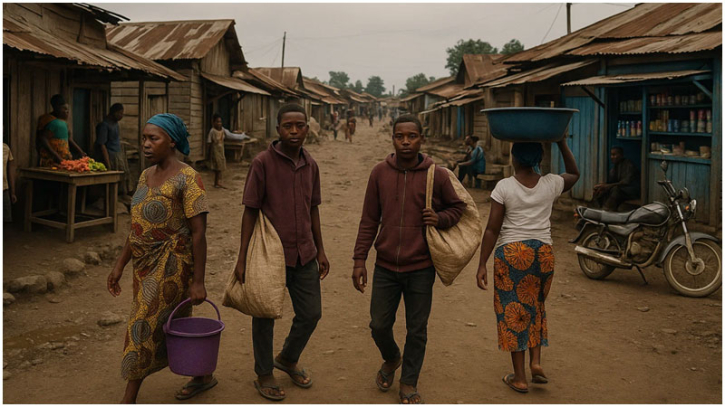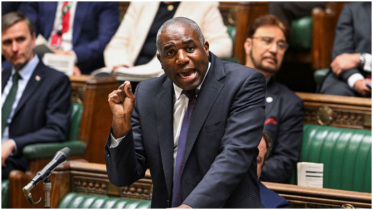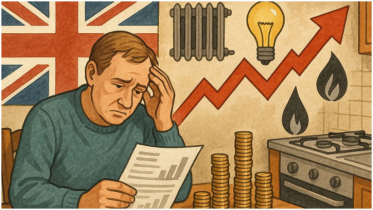Life without cash in rebel-held DR Congo city

Photo: Made with AI
In Goma, the eastern Congolese city seized by M23 rebels in January, cash has become so scarce that parents are now paying school fees with cans of palm oil.
Following the city’s fall to the Rwanda-backed militia, the Democratic Republic of Congo (DRC) halted cash deliveries to banks operating in rebel-held areas. As a result, banks have closed, ATMs are empty, and the local economy is grinding to a halt.
“The priority now is simply to eat,” said Richard Mbueki, a teacher at Majengo school, holding up a can of oil left by a parent in lieu of payment. “We’re barely surviving. This situation is unbearable.”
Majengo school has started accepting food items in exchange for tuition. Parents present a sample of goods — like oil, beans, or flour — which are then assessed for market value. The equivalent amount is logged into the school’s records, and a receipt is issued.
“It’s a temporary fix,” said school official Augustin Vangisivavi, “but it could continue indefinitely.”
Peace talks between the DRC and Rwanda have yielded little progress for residents under M23 control. Mobile payment platforms are being promoted by local authorities as an alternative, but usage remains limited in Goma compared to other East African cities.
With formal banking services suspended, money changers now dominate the financial landscape, often setting exorbitant rates. In response, M23 has introduced a fixed exchange rate to curb price gouging. Still, many residents can’t access their salaries, especially those paid by bank transfer.
Teachers like Mbueki must cross into Rwanda to withdraw funds, incurring added fees. Civil servants and NGO workers are also affected. The economic downturn and exodus of international staff have led to widespread job losses.
“Since the war, job opportunities have vanished. Now I’m just a housewife,” said Godel Kahamby, a former public employee. “We’ve cut spending to the bone — no new clothes, no treats. Survival is all that matters.”
Though basic supplies continue to reach Goma, the economy is in steep decline. Markets are nearly empty, traders report plummeting sales, and demand is drying up.
“Before the conflict, I sold 20 bags of corn flour a week. Now I’m lucky if I sell 10 a month,” said Nelson Kombi, a vendor in Majengo district.
New taxes imposed by both warring sides and disrupted supply lines have pushed food prices higher. M23 has established its own financial authority in anticipation of reopening banks and is urging residents to deposit funds with them — but public trust is lacking. Experts warn this authority should be limited to collecting taxes, not handling civilian savings.
Meanwhile, with shortages of both Congolese francs and U.S. dollars, insecurity has worsened. Night-time crime is rising in Goma and nearby Bukavu as desperation grows.
.png)




